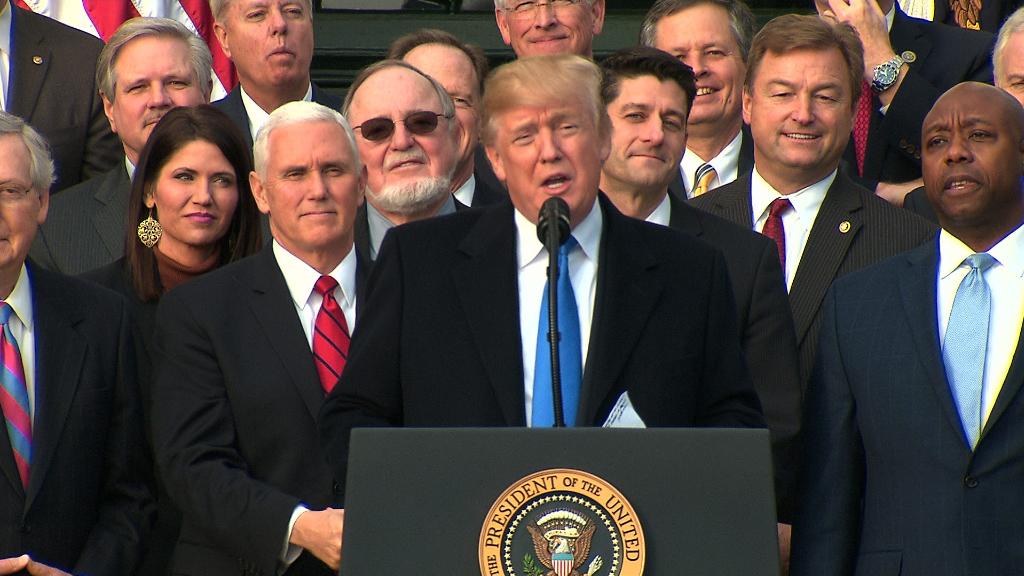
AARP says the Republican tax plan puts Medicare and Medicaid in jeopardy.
And that's not the only problem the group has with the bill, which is on its way to the President's desk.
Several of the provisions "may result in little if any tax benefit for many older tax filers, and for others, a tax increase," AARP CEO Jo Ann Jenkins wrote in a letter sent to lawmakers this week.
First, it criticizes the bill for making individual tax benefits temporary. While many Americans are expected to pay less in taxes over the next eight years, those provisions are set to expire by the end of 2025. (The cut to the corporate tax rate, however, is permanent.)
Second, the letter takes issue with the bill for changing the inflation index. The new calculation could push people into higher income brackets faster, and slow the increase in the standard deduction over time, the Tax Policy Center has said.
Third, the bill limits the state and local tax deduction -- which could hurt those in high-tax states like New York, New Jersey and California.
AARP also expects the tax bill to drive up health care premiums and result in more uninsured Americans. That's because the bill gets rid of the Affordable Care Act's individual mandate. The severity of the impact of this measure is still up for debate among health policy experts.
Related: What's in the GOP's final tax plan
As for Medicare and Medicaid, only time will tell. The tax bill doesn't touch them directly, but the cuts are expected to add $1.46 trillion to the deficit over the next decade.
That increase could trigger automatic spending cuts to entitlement programs, unless lawmakers vote to stop them. Medicare itself could see a $25 billion cut.
Even if Congress stops these automatic cuts, the AARP letter indicates there's still reason to worry about funding in the future.
"The large increase in the deficit will inevitably lead to calls for greater spending cuts, which are likely to include dramatic cuts to Medicare, Medicaid, and other important programs serving older Americans," it said.
Related: Making sense of the new cap on state tax deductions
AARP doesn't oppose everything in the bill.
It gave it a thumbs up for maintaining the medical tax deduction -- which was repealed in an earlier version of the bill. Nearly 75% of people who claim the deduction are age 50 or older.
It also applauded the bill for nearly doubling the standard deduction, and maintaining the additional standard deduction for the elderly. Currently, those age 65 and older can claim an additional $1,550 if they file as single or head-of-household. Married couples filing jointly can claim $1,250 if one is 65 or older, and $2,500 if both meet the age requirement.
Lawmakers also rejected earlier proposals to change the way retirement accounts are treated by the tax code.

